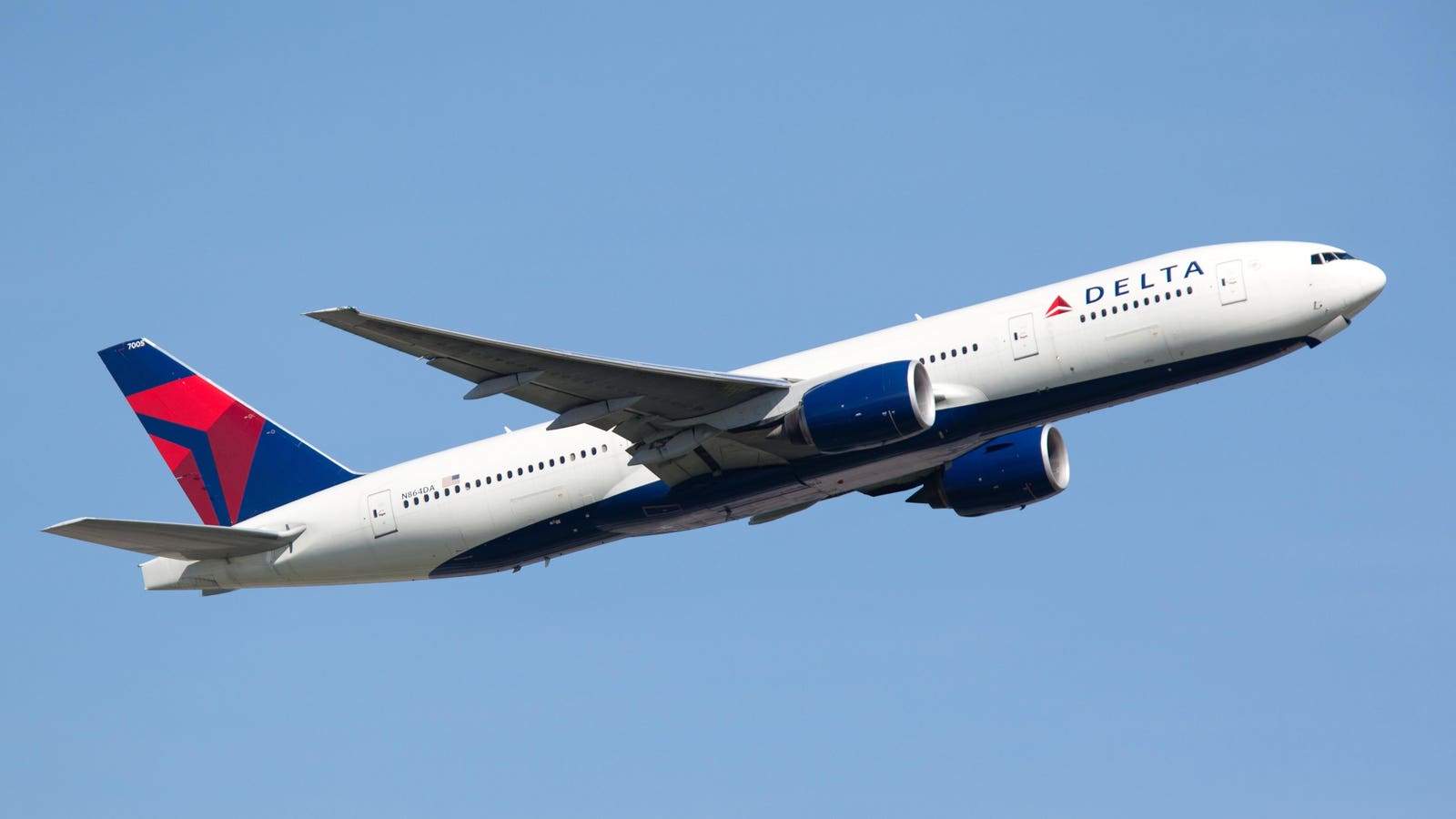Topline
Delta Air Lines, the most profitable U.S. carrier, withdrew its financial guidance for 2025, yet another sign of turbulence in the travel sector caused by President Trump’s tariffs.
Delta withdraw its full-year financial guidance, citing the unpredictable economy.
Key Facts
“Given the broad macro uncertainty,” Delta CEO Ed Bastian told investors on a first-quarter earnings call Wednesday, “it is premature to project the full year.”
Economic anxiety is fueling a downturn in domestic travel demand, Bastian said, with the worst decline in domestic demand “and specifically in the main cabin,” referring to basic economy passengers.
Last month, Delta significantly cut its first-quarter earnings projections by 40 to 50 cents a share, noting a “recent reduction in consumer and corporate confidence caused by increased macro uncertainty, driving softness in domestic demand.”
Looking ahead, Delta forecast its second-quarter revenue could either decline up to 2% or grow as much as 2% over last year, and adjusted earnings per share of $1.70 to $2.30.
Delta shares are up 7% for the day after executives told investors the carrier still anticipates a profit in 2025 and annual adjusted earnings would surpass $7.35 a share.
Key Background
After two consecutive years of growth, 2025 was supposed to be a banner year for Delta, with Bastian predicting in January the “best financial year in our history.” In November, the carrier predicted higher profits for this year, citing high-end travel and the “resilient economy.” But Trump’s tariffs have dimmed the carrier’s rosy outlook. This week financial analysts at major banks began cutting price targets for U.S. airlines. USB cut its price target for Delta by 45%, while Evercore ISI adjusted downward by 13%. Last week, Jefferies analysts also downgraded Delta and other carriers, noting, “consumer sentiment continues to disappoint.” Delta executives acknowledged the vibe shift to investors. “February and March reflected a much more challenging macro environment than anyone initially planned for coming into 2025,” Bastian told investors. “We were positioned for another year of strong growth, however, given broad economic uncertainty around global trade, growth has largely stalled.”
Crucial Quote
“It’s hard to hard to know how this is going to play out, given that this is somewhat self-imposed,” Bastian said. “And I’m hopeful that sanity will prevail and we’ll move through this period of time on the global trade front relatively quickly.”
Big Number
5.7%. That’s how much domestic travel demand jumped last year, far outstripping airlines’ 2.5% increase in capacity, according to full-year global passenger market performance data from the International Air Transport Association (IATA). Globally, the industry saw record-high demand for air travel in 2024, with traffic volume rising 13.6% year over year and capacity increasing by 12.8%.
What To Watch For
Whether the lucrative transatlantic travel demand will see a significant downturn in 2025. Inbound travel from Europe to the U.S. dropped 17% in March compared to last year, the National Travel and Tourism Organization reported Tuesday. That could be a sign that Europeans are souring on travel to the U.S. in the wake of Trump’s tariffs and hardcore immigration tactics.
Further Reading
How Trump Is Torpedoing Foreign Tourism To The US—Potentially For Years To Come, Say Analysts (Forbes)






